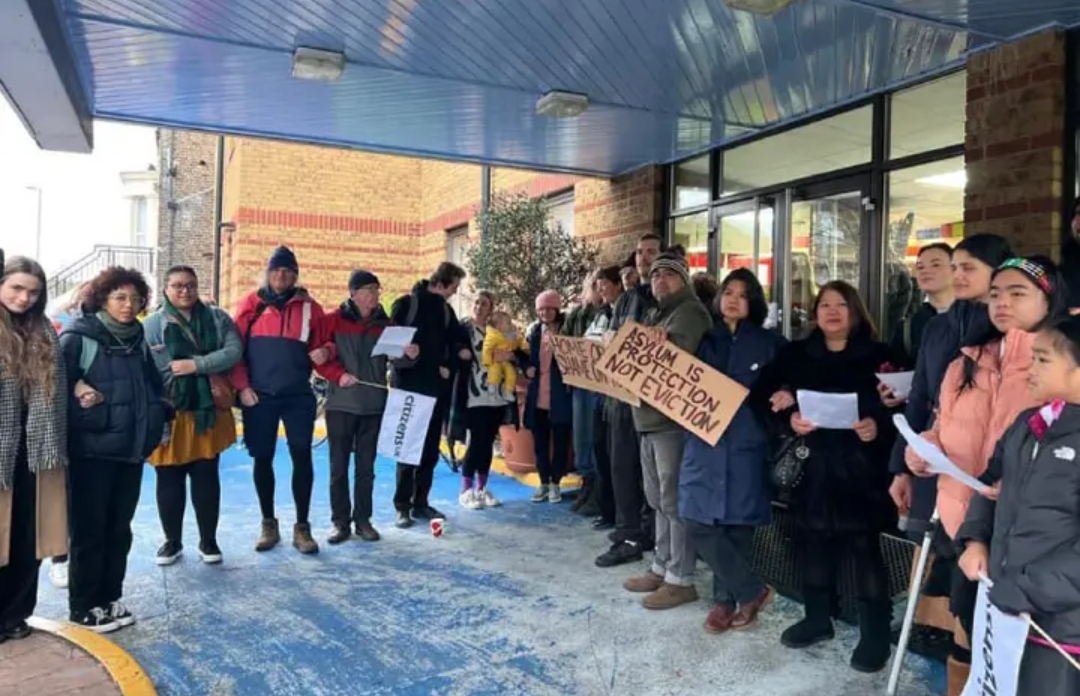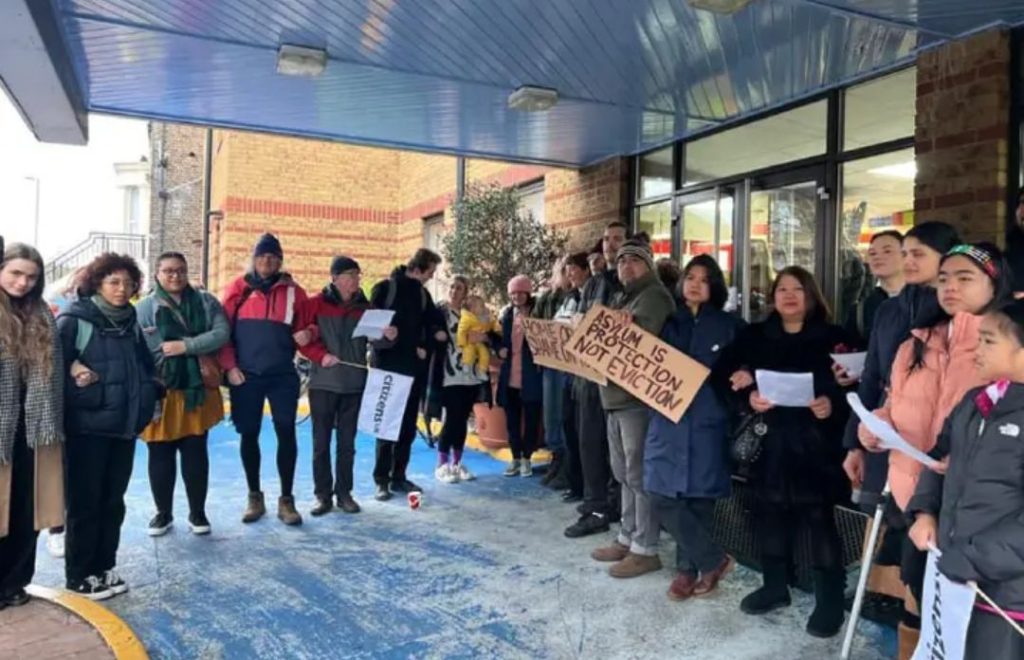
Around 100 anti-racist demonstrators gathered outside a hotel in Walthamstow, East London, on Thursday, denouncing the Home Office’s plans to evict hundreds of asylum seekers. The protest echoed a resounding call against what many perceive as unjust treatment of vulnerable individuals seeking refuge in the United Kingdom.

The backdrop to the protest is a growing concern over the Home Office’s decision to evict asylum seekers from their accommodations, leaving many of them in precarious situations with uncertain futures. The hotel in Walthamstow has become a focal point for this particular demonstration, symbolizing the broader struggle against systemic injustices within immigration policies.
According to the report by socialist worker For those directly affected, the threat of eviction looms large, casting a shadow of uncertainty and fear over their already tumultuous lives. Asylum seekers, already grappling with the trauma of displacement and persecution, now face the added burden of potential homelessness and further marginalization.
Among the protesters were individuals from diverse backgrounds, united by a common cause: to stand in solidarity with those facing eviction and to demand accountability from government authorities. Their voices echoed through the streets, resonating with a shared sense of urgency and determination to challenge the status quo.
At the heart of the demonstration lies a fundamental question of human rights and social justice. The right to seek asylum is enshrined in international law, yet the reality often falls short of these lofty ideals. In the face of bureaucratic indifference and political expediency, the plight of asylum seekers risks being overlooked and disregarded.
The Home Office’s decision to evict hundreds of asylum seekers underscores broader issues of systemic racism and institutionalized discrimination within the immigration system. It reflects a troubling trend wherein vulnerable populations are treated as expendable commodities, subject to the whims of government policies that prioritize optics over human dignity.
Asylum seekers, often fleeing persecution and violence in their home countries, deserve compassion and support, not arbitrary eviction orders that leave them vulnerable to exploitation and harm. The protest in Walthamstow serves as a powerful reminder of the collective responsibility to uphold the rights and dignity of all individuals, regardless of their immigration status.
Beyond the immediate demands for halting evictions, the protest also highlighted the need for systemic change within the immigration system. Calls for fair and humane treatment of asylum seekers reverberated throughout the demonstration, signaling a broader desire for policy reform and a more compassionate approach to immigration.
The demonstration in Walthamstow represents a grassroots mobilization against injustice, fueled by a deep-seated commitment to solidarity and collective action. It stands as a testament to the power of community organizing and the resilience of those who refuse to remain silent in the face of oppression.
In the days and weeks ahead, the struggle for migrant rights will undoubtedly continue, fueled by the determination of activists and allies who refuse to waver in their pursuit of justice. The protest in Walthamstow may be just one chapter in a larger narrative of resistance, but its impact reverberates far beyond the streets of East London, serving as a rallying cry for a more inclusive and equitable society.
As the sun sets on Walthamstow, the echoes of protest linger in the air, a reminder of the power of collective action to challenge entrenched systems of oppression and usher in a brighter, more just future for all.




